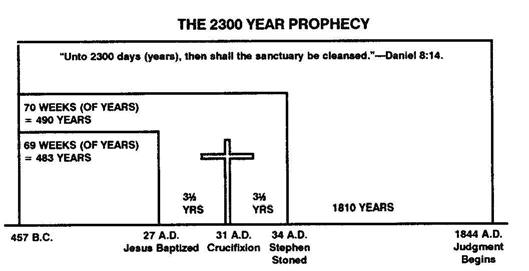What is the message to be given in these last days? Are we sure we know what is to be preached as we approach the Second Coming of Christ? Some of us may think the central message should be about the judgment, the mark of the beast and the number 666, keeping the Ten Commandments, worshiping the Creator, or even about the sanctuary.
As we navigate these prophetic waters, however, I think we’ll see that the Lamb is center stage, with thirty references of this depiction of Jesus in Revelation. Let’s try not to overshadow the Lamb, or dilute His importance in any way. For He IS the “everlasting gospel”, or good news, referred to in Rev. 14:6.
 Memory Text: “Then I saw another angel flying in the midst of heaven, having the everlasting gospel to preach to those who dwell on the earth–to every nation, tribe, tongue, and people–saying with a loud voice, ‘Fear God and give glory to Him, for the hour of His judgment has come; and worship Him who made heaven and earth, the sea and springs of water.'” Revelation 14:6-7, NKJV
Memory Text: “Then I saw another angel flying in the midst of heaven, having the everlasting gospel to preach to those who dwell on the earth–to every nation, tribe, tongue, and people–saying with a loud voice, ‘Fear God and give glory to Him, for the hour of His judgment has come; and worship Him who made heaven and earth, the sea and springs of water.'” Revelation 14:6-7, NKJV
Our study these last two weeks in chapters 7-9 of Daniel, with its talk of beasts and judgment and its allusions to the sanctuary service, directly link us to this week’s lesson in the book of Revelation, where three angels’ messages are clearly presented as going to all the world in the final days.
Sunday: Time of Disappointment
Daniel was told by the angel in the last chapter of his book to “shut up the words, and seal the book, even to the time of the end…” (Daniel 12:4). And Revelation 10 speaks of a little book that is opened (v. 8-11).
Since almost all Christians now recognize that we live in the time of the end, we can only assume that the prophecies in Daniel could be the “little book” referred to in Revelation 10. The very name Daniel means “God is my judge”, perhaps an explanation as to why Daniel hangs on to his Hebrew name longer than his three young friends. One of the themes of both Daniel and Revelation is the time of judgment.
But Revelation 10 also depicts a time of disappointment.
“And I went unto the angel, and said unto him, Give me the little book. and he said unto me, Take it, and eat it up; and it shall make thy belly bitter, but it shall be in thy mouth sweet as honey.” Revelation 10:9 KJV
And that’s exactly what happened to John in vision. “And I took the little book out of the angel’s hand, and ate it up; and it was in my mouth sweet as honey: and as soon as I had eaten it, my belly was bitter.” Revelation 10:10 KJV
 Historically, we saw this fulfilled in the 19th century, when the Millerite Movement incorrectly used the end of the 2300-day prophecy (which occurred in 1844) as the time for the Lord’s Return. What was sweet to them, that Jesus was finally coming back to earth, turned out to be a very bitter experience, as the long awaited day came and went. It was even called The Great Disappointment.
Historically, we saw this fulfilled in the 19th century, when the Millerite Movement incorrectly used the end of the 2300-day prophecy (which occurred in 1844) as the time for the Lord’s Return. What was sweet to them, that Jesus was finally coming back to earth, turned out to be a very bitter experience, as the long awaited day came and went. It was even called The Great Disappointment.
When this happened in 1844, the Millerites splintered off, many of them losing their faith altogether. But there was a small group of believers who began meeting and studying the prophecies again to try and discover why He never came when the date seemed so correct.
That’s when the study of the sanctuary began, and many truths in the Bible began to unfold to these Adventist pioneers. They found that the date was correct, but the event was in error. And as we’ve already seen these last few weeks in our study, the heavenly sanctuary entered a new phase of ministry in preparation for the Lord’s Coming, and a special pre-Advent judgment began in heaven.
Revelation 10 continues in the last verse: “And he said unto me, Thou must prophesy again before many peoples, and nations, and tongues, and kings.” The founders of the Adventist church certainly did just that as they continued their study and shared prophecies in both Daniel and Revelation with the world.
Discussion Questions: In what way were those who were disappointed in 1844 similar to the disciples’ experience in the time between Jesus’ death and resurrection? How can we handle disappointments in our own lives without losing our faith?
Monday: Fear God!
All people will eventually come to fear God; but this fear will look different for the righteous than it does for the unrighteous. For the believer, fearing God means to honor, obey, praise, and trust Him. They truly glorify His name, by reflecting and vindicating His character in their lives. They rejoice at His Coming.
But the unjust also learn to fear God. They are afraid of His wrath, punishment, and judgment. This is also a type of reverence, such as one might respect the power of nature when a tornado or tsunami bears down on your home and you do all you can to get out of destruction’s pathway.
The first angel’s message tells us to fear God (Revelation 14:7, part of the memory text). It tells us:
- what fearing God is (giving glory to Him),
- when this message goes out (when the hour of His judgment has come), and
- who we are fearing (the God who made heaven and earth).
Discussion Questions: What can you learn about fearing God in Psalm 34? What does it mean to “taste and see that the Lord is good” (v. 8) How can we do this in the midst of all the destruction and confusion of the last days? (v. 7)
Tuesday: The Rage of Nations
We know that the door of mercy is still open throughout the three angels’ messages, because they consist of a call to turn away from Babylon and worship our Creator God in heaven. But there are also angry nations to contend with at this time.
“And the nations were angry, and the wrath is come, and the time of the dead, that they should be judged, and that thou shouldest give reward unto thy servants the prophets, and to the saints, and them that fear thy name, small and great; and shouldest destroy them which destroy the earth.” Revelation 11:18 KJV
 Last week we saw how the “time, times, and dividing of time” in Daniel 7:25 equaled 1260 days or years in Revelation 12:6, a time of persecution for God’s church. We also see in Revelation that forty-two months would equal 1260 days or years. A month in Biblical timekeeping was 30 days. So 40 x 30 = 1200 and 2 more months or 60 days = 1260 days or years.
Last week we saw how the “time, times, and dividing of time” in Daniel 7:25 equaled 1260 days or years in Revelation 12:6, a time of persecution for God’s church. We also see in Revelation that forty-two months would equal 1260 days or years. A month in Biblical timekeeping was 30 days. So 40 x 30 = 1200 and 2 more months or 60 days = 1260 days or years.
The reason for these time periods are for us to see that when they are fulfilled we are indeed at the time of the end. We saw last week that the papal power was wounded heavily in 1798 when the pope at that time was captured, breaking the papal power and ending the terrifying hold it had on the world. This was the end of the 1260 day/year time prophecy, having started in 538 AD.
Since 1844 (the end of the 2300 day/year prophecy and the longest one given in the Bible), we are encouraged that the unfallen worlds are looking at the books and witnessing the vindication of God in the throne room already (this pre-Advent judgment we’ve been studying). Our challenge here on earth is to maintain our relationship with our Advocate and prepare our hearts to meet Him in the clouds when He comes.
“And the temple of God was opened in heaven, and there was seen in his temple the ark of his testament: and there were lightnings, and voices, and thunderings, and an earthquake, and great hail.” Daniel 11:19
Discussion Question: Why does God’s wrath and the seven last plagues begin in His temple as the previous verse states? Compare Revelation 6:10 and 15:1, 8.
Wednesday: Worship the Creator
God calls repeatedly for His followers to worship Him. Indeed, the whole book of Revelation seems to be about worship, but unfortunately most of the world has been worshiping the wrong person. There are three other entities that are vying for our worship:
- the dragon (or Satan, Rev. 12:9)
- the beast from the sea (Rev. 13:1, “sea” representing many people and nations, Rev. 17:15; it sounds like the little horn power, which we have recognized as the papacy)
- the beast from the earth (Rev. 13:11, the earth would then be a sparsely populated land; some have identified this as the United States, also due to the timing of its emergence as a nation)
It appears that all three of these powers will link their efforts to overcome the Lamb in the very end. In fact, this beast from the earth creates an image to the beast. It will become like the first beast in taking away religious freedom and persecuting those who don’t worship in their prescribed way.
As our lesson put it, those who don’t worship the image of the beast may lose their temporal lives, but those who worship the image will lose eternal life.
I realize there are many people who balk at the idea that the Sabbath will truly be a deciding factor in the very end of history. I’ve been skeptical at times myself. But the evidence is clear: you either worship God as Creator or you don’t. And the Sabbath is certainly suited as one of the Ten Commandments that could denote our loyalty to the Creator. There are no logical reasons to obey this commandment, except that God told us to.
Discussion Question: How is it possible to have a deeper relationship and commitment to God by keeping the Sabbath holy?
Thursday: The “Patience” of the Saints
“Here is the patience [or perseverance] of the saints: here are they that keep the commandments of God, and the faith of Jesus.” Revelation 14:12 KJV (If you are tempted to think that keeping the commandments are not important today, read Matthew 5:17-19 to hear what Jesus Himself said about the commandments.)
- The second and third angels’ messages are for those who don’t heed or haven’t been convicted of the first angel’s message to fear God and worship Him as Creator, a distinct call to Sabbath observance.
- The second angel is a call for the remnant to come out of Babylon. Yes, God is still calling the remnant, as it tells us in Rev. 18:4–
“And I heard another voice from heaven, saying, Come out of her, my people, that ye be not partakers of her sins, and that ye receive not of her plagues.” KJV
- The third angel in pointing us to the Lamb (“…in the presence of the Lamb” Rev. 14:10) has been said to be the teaching of justification by faith. Only by His merits will we be saved in the end. Through faith in Him we receive the promise of eternal life. (Selected Messages, bk. 1, p. 372, EGW)
Discussion Question: Where in the three angels’ messages can you see the teaching of justification by faith? (Rev. 14:6-13)
Summary: How is your devotional life these days? When was the last time you had family worship? Ideally our days should be hemmed in with worship to God–in the morning and in the evening. Worship shouldn’t be reserved just for the weekly church service. If you only saw your husband or wife for a brief weekly visit, how difficult it would be to maintain your marriage. And if you parents only saw your children for a short time every week, would there be any ties that bind you together? Even our close friends like to hear from us more often than that. How close would you say you are to God? And how can that change?
Next Week: The Cosmic Conflict Over God’s Character








